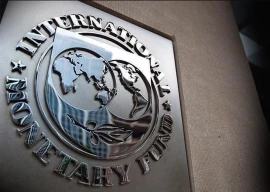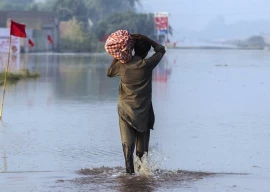
The advancement of technology is helping address many social, civic and economic challenges in Pakistan, though the country has lagged behind peers and has to make giant strides to make further progress. “Alleviating societal problems is neither a simple nor a quick process, however, new technologies offer alternative paths,” remarked Noman Ahmed Said, CEO of SI Global, while talking to The Express Tribune.
Artificial intelligence, for instance, combined with the data gathered from a variety of sources, can help curate information. According to Said, this means better identification of medical concerns, the ability to develop renewable food sources and the improvement of safety among communities. “Many opportunities provided by new technology are largely used to help solve issues that an organisation or consumer encounters – streamlining processes, improving efficiency, enhancing customer experience and ultimately increasing revenue,” he pointed out.
“Mobile technology has the potential to help address many of the wider social and civic inequalities in Pakistan,” commented Jazz CEO Aamir Ibrahim, while underlining the importance of taking on the challenge of pursuing digitisation in the country. He expressed concern over the lack of connectivity opportunities for women and cited a GSMA study, which highlighted gross digital inequalities with only 51% of women owning a mobile phone compared to 76% of men.
“To develop an inclusive digital ecosystem free from all biases, all stakeholders need to work in tandem to improve institutional frameworks for promoting fair access to technology,” he emphasised. Noman Ahmed Said stressed that technology could help to reduce poverty by creating more jobs and allowing people in developing countries to reach a wider market. “Having access to the internet, combined with digital literacy, can open more opportunities for people to economically support themselves,” he said.
Besides reducing poverty, technology was being used in the areas of climate change, education, overall economy, voting, healthcare, public safety, farming, safe drinking water, banking, shopping, etc to address social, civic and economic inequalities in Pakistan, pointed out Said. New technology can particularly give a major boost to agriculture, which is a major earnings source for Pakistan and the highest employer of labour force, comprising around 10 million females who constituted 70% of the total employed women. “Digitisation has enabled citizens to transcend barriers related to caste, creed, gender, etc, aiding them to discover and learn at a much greater speed and extent,” remarked Asif Aziz, Chief Commercial Officer at Jazz.
“We have started moving towards one big inclusive society, where everyone is accepted and respected without discrimination, that’s the digital power,” he said. The Bank of Punjab Group Head of Human Resources Alia Zafar, while commenting on how to drive the country’s digital ecosystem, emphasised “change is always scary, however, embracing digitisation will be crucial for the development of Pakistan”. She encouraged the governing bodies to take responsibility and provide stakeholders with a roadmap that could inspire them to further their efforts as working in cohesion and fighting all frictional forces would be vital for sustainability in the country.
UNDP Pakistan’s Head of Accelerator Lab (Exploration) Beenisch Tahir underscored the importance of non-traditional actors, such as telecom and IT organisations, in sustaining an environment that promoted digitisation. Talking about the digital world, she called for conducting an immediate study into the new dimensions of human rights and the need to spread them. She voiced hope that connectivity would provide wonderful breakthroughs for education, healthcare and other areas, which would empower individuals to become more aware and counter socio-cultural barriers in society.
Noman Ahmed Said stressed that in order to craft Pakistan’s journey towards food security and zero hunger as part of the Sustainable Development Goal (SDG), the agriculture sector needed to make structural shifts to embrace technology and digitisation. “For this reason, the technology is now supporting the sector through advisory services, procurement and smart farming.” The outcome will be in the form of growth and prosperity of farmers, address social issues such as gender gap, lack of youth participation, and mitigate the impact of climate change. Similarly, “there is a need to enhance public sector digitisation, support freelancers, digital and financial access, strengthen the start-up ecosystem, support technology, ensure consistency in policies and drive adoption through behavioural change,” he said.




1725967717-0/Untitled-design-(3)1725967717-0-165x106.webp)













COMMENTS
Comments are moderated and generally will be posted if they are on-topic and not abusive.
For more information, please see our Comments FAQ